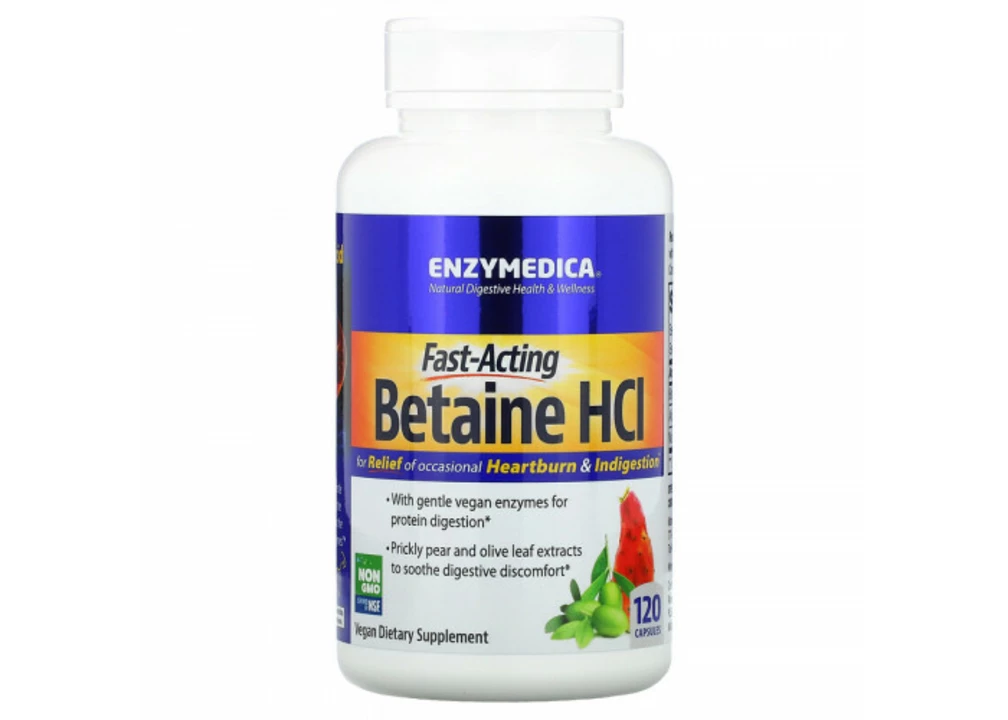Betaine hydrochloride (betaine HCl): what it does and who it helps
If your digestion feels slow after meals or you get bloated from protein-heavy dishes, low stomach acid might be the cause. Betaine hydrochloride — often called betaine HCl — is an over-the-counter supplement people use to raise stomach acidity and help break down food. It isn’t a cure-all, but when used the right way it can ease some digestion problems.
How betaine HCl helps digestion
Stomach acid starts protein digestion, helps absorb vitamin B12 and minerals, and kills many incoming microbes. If acid levels are low, food can sit longer in the stomach, causing bloating, belching, or undigested food in stools. Betaine HCl supplies extra acid so your stomach can do its job better. Small clinical trials and gastroenterology reviews show benefit for people with confirmed low gastric acidity, especially when guided by a clinician.
People who sometimes try betaine HCl include those with long-term use of acid suppressors (like PPIs), older adults with reduced acid, or anyone with consistent bloating after protein meals. It can improve meal comfort and nutrient absorption when acid is truly low.
Safe dosing, side effects, and warnings
Common betaine HCl capsule doses range from 325 mg up to 650 mg taken with a protein-containing meal. A careful approach is to start at the lower end and only increase if needed and tolerated. If you feel a burning sensation, sharp stomach pain, or reflux that gets worse, stop immediately.
Do not take betaine HCl if you have an active peptic ulcer, gastritis, Barrett’s esophagus, or a history of stomach bleeding. Avoid it if you’re on blood thinners or certain medications unless your doctor okays it. If you take PPIs or H2 blockers, discuss options with your prescriber before starting HCl supplements — suddenly adding acid can cause discomfort.
Side effects are usually stomach burning, heartburn, or nausea. Those are signs to stop. Long-term routine use without medical oversight isn’t advised. If symptoms persist, get evaluated — low acid can look like other conditions that need different treatment.
How to pick a product: choose a reputable brand that lists betaine HCl and any added pepsin clearly. Third-party testing or GMP labeling is a plus. Don’t assume “more is better.” Aim for the lowest dose that helps, and only use during meals.
Quick checks: a doctor can measure stomach acid or run tests for H. pylori and ulcers before recommending betaine HCl. If you see blood in stool, have unexplained weight loss, or severe abdominal pain, seek immediate care.
Want to try betaine HCl? Talk with your healthcare provider first, start low, watch for burning, and stop if anything feels wrong. That simple routine lets you test whether extra acid helps your digestion while keeping you safe.
Experience the Life-Changing Effects of Betaine Hydrochloride: A Dietary Supplement for Enhanced Fitness and Health
I recently discovered the incredible benefits of Betaine Hydrochloride, a dietary supplement that has truly transformed my fitness and health journey. Not only has it improved my digestion, but it has also increased my energy levels and workout performance. I've found that incorporating this supplement into my daily routine has made a significant impact on my overall well-being. I highly recommend giving Betaine Hydrochloride a try if you're looking to enhance your fitness and health. Trust me, the life-changing effects are well worth it!
More
